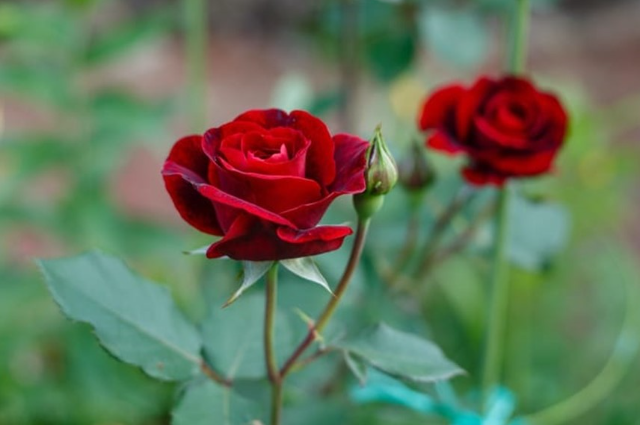It is a truth universally acknowledged that poetry is the spontaneous overflow of powerful feelings. The keywords here are not ‘feelings’ or ‘overflow’, but spontaneous and powerful. These two expressions differentiate poetry from prose. Those who love reading poetry, will agree that within a page, using a modicum of words, we receive a world view of a lifetime.
Exactly a hundred years ago, T.S.Eliot wrote The Waste Land (1922) which brought and opened up a watershed in modern poetry and thought. In the very first poem, ‘The Burial of the Dead’, Eliot uses the expression: “I will show you fear in a handful of dust.” Think about it. Inhale and exhale. The words are as apocalyptic as they are prophetic.
It is easy to write prose. But it is very difficult to write poetry. Not all writers become poets. The art of poetry is the art of the sublime. Conciseness lies at the very heart of all good poetry.
Shakti Chattopadhay (25 Nov, 1933 – March 23, 1995)’s renown as a forerunner of modern Bengali poetry is undisputed. His realistic depiction of rural life, urban angst and the need to return to nature have placed him in the global map successfully. In his Foreword to The Collected Poems of Shakti Chattopadhay [ Podyo Somogro], poet Subhas Mukhopadhay locates the poet Shakti as a direct descendant of another poet of nature from Bengal, Jibanananda Das. According to him, these two were the most pure and true poets of Bengali literature.
Translation of one of his poems from the collection Amid Autumn Wilderness I am A Postman [Hemanter Aranye Ami Postman], first published In March 1969, follows:
SINS OF NOON
Due to wrongs of noon, I am wanderer
Simuls in the city
Have bloomed, in the bedroom
Have got an extra window
In the dark, the canna flower’s sitting disinterestedly in a meeting dressed as green trouser
I am – the clear speech of the sky come to my ears today.
In the afternoon, the hermit dreams about many free revolutions.
At this hour
Ferrying across is very difficult.
I can recollect our wrong heaven, composing sonnets
A traditional nut’s skin and its pulp’s separate
Presence, I remember still –
The lantern’s scared after the sight of Cathedral- air,
Sweet instead of sour, spring vendors laziness.
Women stand in queues, tom toms traverse in Maidan and neighborhoods
I love the clove-pink pastry, blooms in the flamboyant tree
Grinding paste of domesticity and dying embers of love, embezzled.
But once in a blue moon
Penetrating the station, wander to the other’s house,
Sometime
Deception’s more at noon, its sins have made me wanderer
Uncomprehending, the wealthy Gorilla couple swim.
(Translation by Haimanti Dutta Ray)
I had always loved reading poetry. These are my own humble attempts:
AGE OF A ROSE
The warm
Winter sun brightens up
The day, as a sweet smile
Warms a gloomy exterior –
A face which had seen
Many moons go by it side
Has been lit
All of a sudden, by a laugh,
Far removed from the cries
That churn up in the belly
Everyday, every single day
Of the year, in all the months
In recent years.
The warm winter
Has cackled up the wrinkles
Faint, but discernable ones,
Ones that are leathery to the touch
Are the ones that’re oldest,
Signs of age catches up with you
When most vulnerable
Not able to move
Or run either
Age, something that comes back to us,
If we don’t go after it, without fuss.
Gives us wisdom, when we need it,
We cling on to it, with all our power n’ grit.
The winter sun puts smiles on flowers,
They laugh and sway, embalmed in bowers.
Roses are choosy
They aren’t for all
Even in dullness and gloom, we laugh,
Our laughter and cheer shoos despair as chaff.
Travel weariness makes us tired and drowsy,
We are travelers on life’s roadways, otherwise lousy.
SHARED ADOLESCENCE
By Haimanti Dutta Ray
The afternoon sleeps like a child in its mother’s lap,
The sapling grows slowly as nourishment seeps into it sap.
The somnambulance around also lulls me into a slumber,
But I’ve kept awake, despite all, which is itself a wonder.
Two pigeons have perched on the parapet,
They are staring down at me as I search the net.
Clothes are hanging from a long clothesline
From a neighbor’s house, but some resemble mine,
How’ve they perched themselves there? Chance?
I settle for some self-introspection. No, it’s by choice.
Rather than inviting envy, I’d rather tell the truth.
It’s been ages that I’d been called ‘the uncouth’.
I’d knocked at my neighbor’s, on a rainy afternoon.
Little did I know that I’d become a welcome guest soon.
Slowly as the hours of my visits increased,
The clock, kept beside my table, showed a time long ceased.
The lady o’ the house made excellent puddings and cakes.
I thought they’re as delicious as tho’ of foreign makes.
Without me realizing, I became a regular there,
For their house was just round the corner, very near here.
Their son and I, belonged to same years of boyhood,
When daredevilry, stories of harpoon, had perched along those of Robin Hood.
As carrom and kites became my favorite playmates,
I didn’t realize when I made quarrels, something the boy hates.
Adolescence and youth are years of bliss and happiness,
Catch them by their noose, for all of your kindness!!

